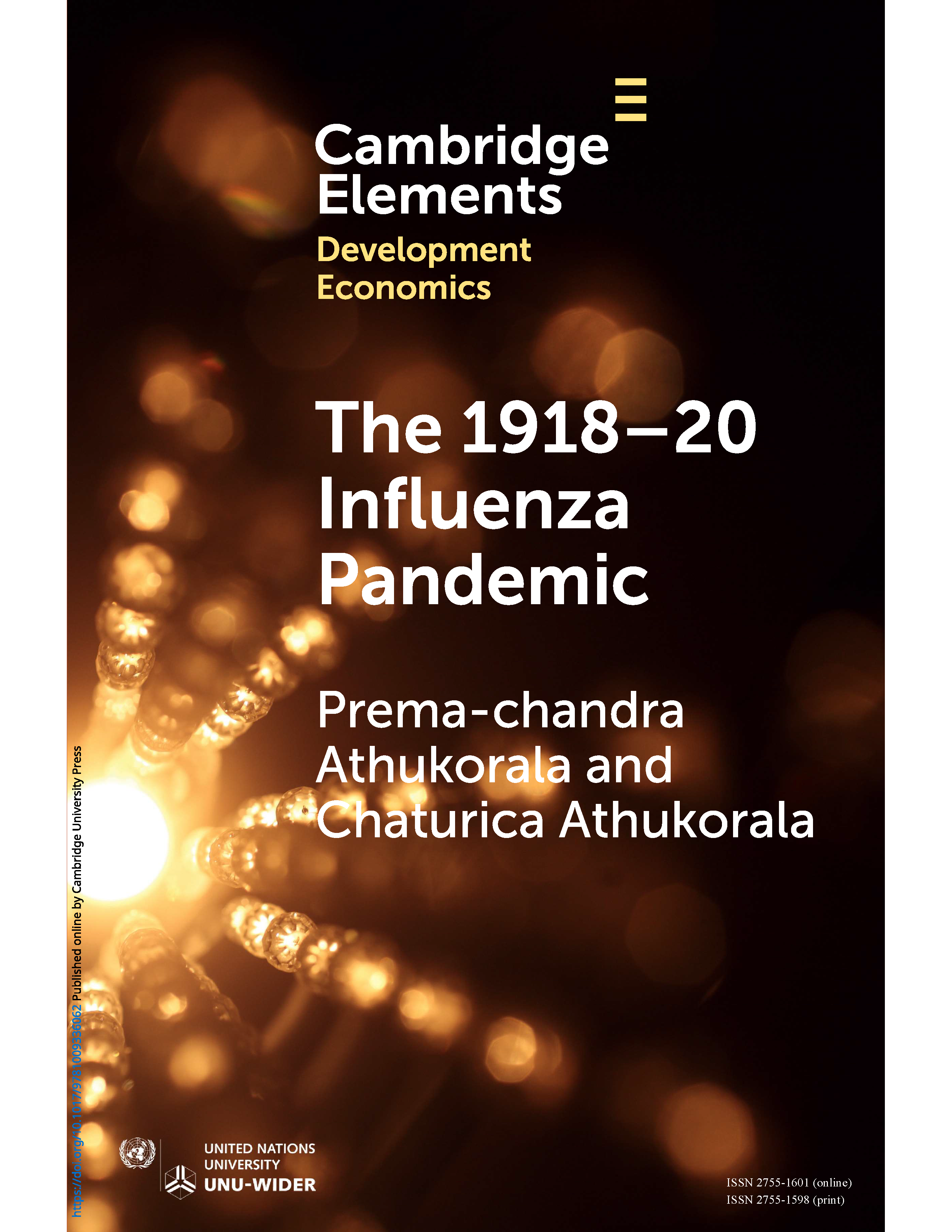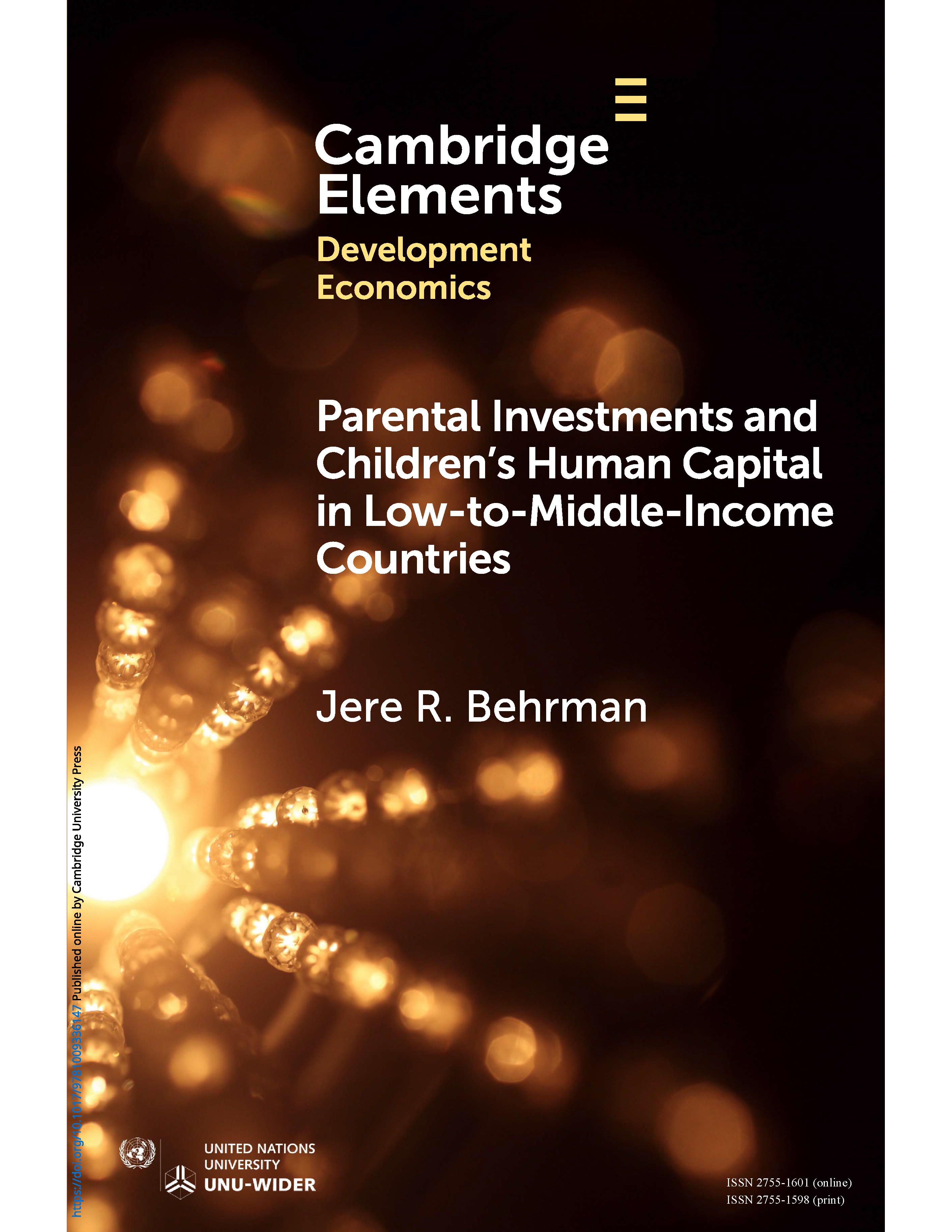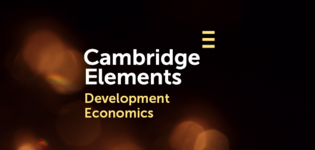Blog
Not too long and not too short: Introducing the new UNU-WIDER and Cambridge University Press series in Development Economics
Simon Kuznets’ pipe dream was to have economic inequality data that rarely existed when he was writing. What are the pipe dreams of today’s development economists?
How about a rigorous development economics book, or set of books, you could read in a spare hour or two? A book that provides an analytical survey on a topical area by a leading scholar; or a book that does something innovative. That surprises by, for example, synthesising a project or body of work, or new methods and applications, or perhaps an emerging or frontier issue in development economics?
The partnership between UNU-WIDER and Cambridge University Press (CUP) makes that pipe dream a reality with a new short-to-medium-sized book series on key topics in development economics. Each volume will be available Open Access —that is free online.
So what’s the idea behind the series?
In their preface to Volume 1 of the authoritative Handbook of Development Economics —the many volumes of which subsequently became a core text for scholars and students of development economics— Hollis Chenery and T.N. Srinivasan (1988) defined Development Economics as ‘the study of the economic structure and behaviour of poor (or less developed) countries’.
Chenery and Srinivasan went on to argue that ‘…development economics is explicitly characterized by competing paradigms, rather than by a dominant orthodoxy…’.
The Cambridge Elements in Development Economics series will follow that same spirit of openness to different schools of thoughts and competing paradigms in development economics as first proposed by Chenery and Srinivasan.
Elements are a new concept in academic publishing, combining the best features of books and journals. The Elements series consists of original, concise, authoritative, and peer-reviewed research. Each volume will provide comprehensive coverage of the key topics in disciplines spanning the arts and sciences, in about 20,000 to 30,000 words. Conceived from the start for a digital environment, they will provide a dynamic reference resource for scholars, graduate students, researchers, and practitioners.
In line with UNU-WIDER’s mandate, the series intends to address the big picture questions in economic development. It will provide authoritative contributions on important topics in development economics from leading scholars.
The series will cover both micro and macro aspects of development economics. It will be consciously agnostic in its coverage of topics and will not privilege one approach over another. It will welcome both mainstream and heterodox contributions in the field of development economics. It will cover both traditional topics in development economics, such as macroeconomics, inequality and poverty, and economic transformation, as well as emerging fields, such as environmental sustainability, conflict, and political economy.
For these and future volumes in the Elements series, the editorial team is comprised of senior UNU-WIDER research staff, as well as leading development economists drawn from UNU-WIDER’s network.
What to expect? From COVID-19 to social mobility
 Already there are two Elements released, providing analysis and insight into important issues facing development scholars and policymakers today. The first looks at COVID-19 through the lens of the 1918-20 influenza pandemic —also known as the Spanish Flu— while the second delves into the factors influencing human capital in low- and middle-income countries.
Already there are two Elements released, providing analysis and insight into important issues facing development scholars and policymakers today. The first looks at COVID-19 through the lens of the 1918-20 influenza pandemic —also known as the Spanish Flu— while the second delves into the factors influencing human capital in low- and middle-income countries.
The 1918–20 influenza pandemic: A retrospective in the time of COVID-19, by Prema-chandra Athukorala and Chaturica Athukorala, provides an analysis of the research from the last century to place the current pandemic in historical context. It identifies where there are parallels and lessons about what may come. This important contribution helps us to better understand the lessons we failed to learn from the 1918-20 experience and how to face future pandemics.
 The second Element of the series, Parental investments and children’s human capital in low-to-middle-income countries, by Jere R Behrman, reviews the literature on investments in children’s human capital, the determinants, and the effects on poverty and inequality. It provides valuable insights into the gaps and flaws in the policy analysis to-date, providing guidance for researchers and policymakers alike.
The second Element of the series, Parental investments and children’s human capital in low-to-middle-income countries, by Jere R Behrman, reviews the literature on investments in children’s human capital, the determinants, and the effects on poverty and inequality. It provides valuable insights into the gaps and flaws in the policy analysis to-date, providing guidance for researchers and policymakers alike.
What next? Pipe dreams and pipelines
In the more than half a century since Kuznets dreamed about the inequality data he wanted, much progress has been made, though many gaps remain. We hope that the new series will bridge gaps in important and topical areas of interest and make progress on key issues.
In the pipeline are titles on structural transformation, social mobility, state capitalism, resource-rich economies, and culture and gender.
Each Element appeals to both academic and policy-oriented audiences. They provide concise but comprehensive overviews of the literature and they also contribute new knowledge, with expert insights into where researchers should look next and how policymakers can apply knowledge more effectively.
Over the next year, look for each new Element in the series on the dedicated website.
Andy Sumner is a Non-Resident Senior Research Fellow at UNU-WIDER. He is also a Professor of International Development at King’s College London, and Director of the Economic and Social Research Council (ESRC) Global Challenges Strategic Research Network on Global Poverty and Inequality Dynamics.
Kunal Sen is Director of UNU-WIDER and a Professor of Development Economics at the Global Development Institute, University of Manchester.
The views expressed in this piece are those of the authors, and do not necessarily reflect the views of the Institute or the United Nations University, nor the programme/project donors.
 Join the network
Join the network









